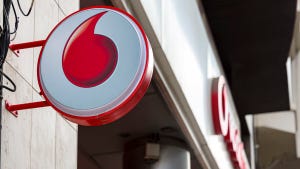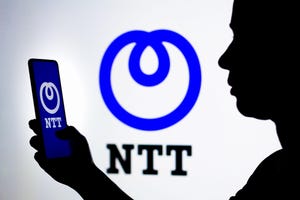As 5G aims to become a viable alternative to in-home broadband, cable will continue to enjoy a significant cost, capacity and speed advantage, Brian Roberts says.

5G networks are positioned to deliver cable-like broadband speeds into the home, but HFC networks are already gearing up to raise the bar well beyond the reach of the next-gen wireless standard.
That sums up how Comcast Corp. Chairman and CEO Brian Roberts views 5G as a competitive, in-home broadband alternative to cable.
"We know 5G's coming and what its implications will be," Roberts said Tuesday at the Morgan Stanley Investor Conference in San Francisco, noting that Comcast has people on the ground at Mobile World Congress in Barcelona. "They [the 5G service providers] are hoping to get to the speeds we're offering today, and by the time they do, we're hoping to be ten times faster or beyond."
Roberts appeared to be alluding to DOCSIS 3.1, which today is being used to deliver downstream speeds of up to 1-Gbit/s, as well as Full Duplex DOCSIS, an annex to D3.1 now being branded by the cable industry as "10G" that is shooting for multi-gigabit symmetrical speeds up to 10 Gbit/s. (See CES 2019: Cable's 10G Tech 'Will Work'.)
Roberts also questioned whether 5G, as an in-home broadband alternative, will offer improvements with respect to costs, as VoIP did for the long-distance telephone market, or in areas such as quality or reliability. He said he takes "great comfort" in believing that 5G won't represent a similar leap in those important areas.
At the same time, he said this doesn't mean that 5G won't provide competition in some pockets and certain scenarios. But, he argued that it isn't something that cable won't be prepared to contend with.
"I believe if you have a great wired network, you're going to be super-relevant and super-valuable," he said.
That also fits in with Comcast's bigger pivot toward being a "connectivity" company focused on broadband more so than video.
"Twenty-one years ago, [Microsoft founder] Bill Gates said to me, 'Someday you'll have more broadband customers than you'll have video customers,' " Roberts recalled (Comcast crossed that line in 2015). "Clearly, our largest, most profitable business is broadband."
That also fits into the video trends as streaming continues to take off. "Years ago, we said video over the Internet will be more friend that foe, and we're sitting here today experiencing that reality."
Some of that reality is taking shape with a direct-to-consumer OTT service that NBCU is developing that will be free (ad-supported, with targeting) to Comcast and Sky customers, along with ad-based and paid options for others. (See Can NBCU Crack the Economics of OTT?)
Comcast, meanwhile, will continue to invest in its own pay-TV product, as it's still a key part of the bundle. However, Roberts reiterated that Comcast won't spin its wheels chasing after unprofitable customers. (See AT&T's Pay-TV Biz Takes Big Hit as Promotional Subs Flee .)
Related posts:
— Jeff Baumgartner, Senior Editor, Light Reading
About the Author(s)
You May Also Like











